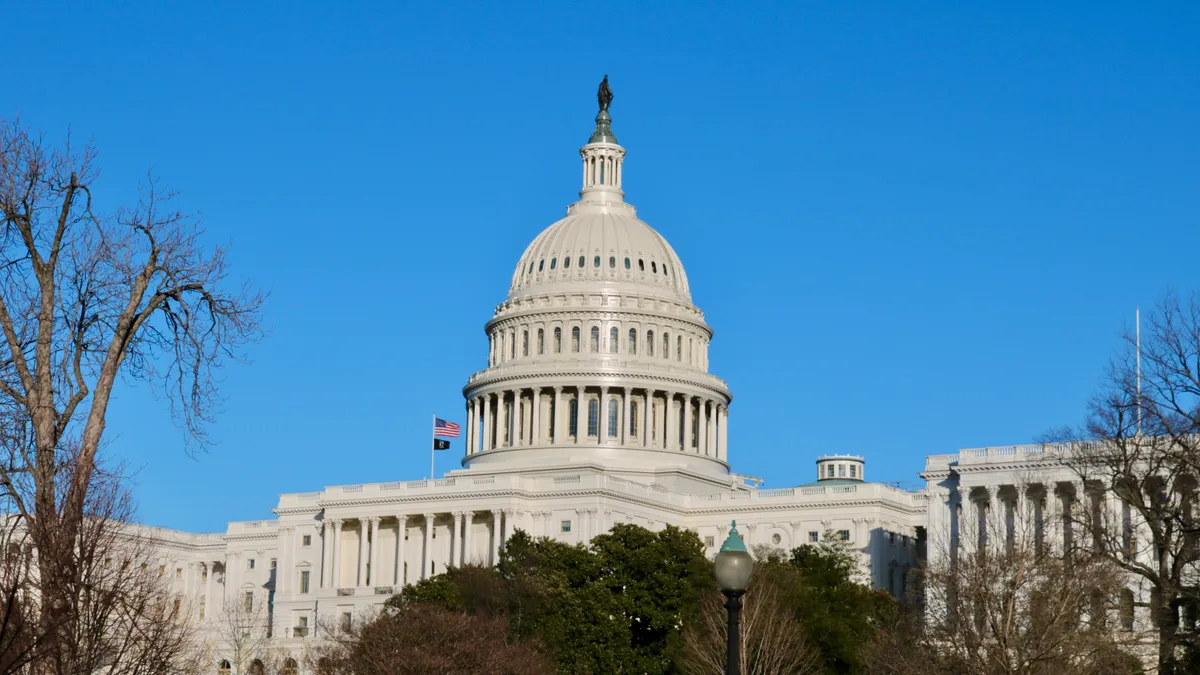A growing number of states are contemplating laws to smooth the phaseout of the London Interbank Offered Rate (LIBOR), increasing the pressure on federal lawmakers to pass legislation that would provide a uniform solution and relieve financial executives from having to contend with a patchwork of laws governing legacy LIBOR-linked contracts that lack fallback provisions.
Georgia and Florida recently introduced bills that would provide a SOFR-linked replacement rate for such LIBOR-legacy contracts without provisions that specify the replacement rate, according to Douglas Youngman, a partner with the law firm of Holland & Knight who specializes in derivatives and structured products. They follow New York, where lawmakers approved legislation clarifying the switch from LIBOR last year, and Alabama.
The state efforts come as the U.S. House in December passed the Adjustable Interest Rate (LIBOR) Act of 2021 by a vote of 415-9. The bill had the support of many trade groups such as the American Bankers Association, the National Association of Corporate Treasurers and the Commercial Real Estate Finance Council (CREFC). Industry groups have been circulating a draft text and a bill could be introduced in the Senate as early as this week, Justin Ailes, head of government relations at CREFC, wrote in an emailed response.
Advocates would like to see federal legislation well before LIBOR’s remaining tenors are phased out in June of 2023. Characterizing the federal legislation as not controversial, Ailes wrote that he was optimistic that LIBOR may be able to move through the Senate quickly. Yet while LIBOR legislation on both state and federal levels has drawn bipartisan support, the current climate of partisan gridlock in Washington D.C. creates some uncertainty.
"It shouldn’t divide by party lines but you never know," Youngman said, adding that there's some concern that the federal legislation may not happen. States are, "starting to see this on the horizon, recognizing that they may not be able to wait for a federal solution and trying to come up with one that would at least cover their state."
Safety net
If passed, advocates say the legislation now before the Senate would act as a uniform safety net by automatically switching the LIBOR-linked contracts without fallback provisions to SOFR, the replacement rate recommended by a panel that includes the Federal Reserve and financial institutions. In addition, in the event that a contract allows one party to choose a rate, it would also provide the decision maker legal protection or safe harbor so long as a SOFR-based replacement rate is chosen.
Lary Stromfeld, a partner with Cadwalader, Wickersham & Taft LLP law firm who helped write the New York legislation that served as the model for the others, said there was some urgency to getting federal legislation passed in order to provide a more uniform solution. "The practical window for providing some assurance and stability to the market is for all of this to get clarified as early as possible this year," he said.
As it stands now, financial executives need to check their LIBOR-based contracts to determine what state's laws govern it. For contracts under the laws of New York or Alabama, which have passed LIBOR replacement legislation, the way forward is clear but elsewhere executives will need to get proactive and address their contracts, he said.
For contracts governed by states without legislation on the matter, Youngman said one possible solution would be to follow a U.K. plan which has proposed a synthetic LIBOR that could be used for a limited time after LIBOR's phaseout. "That's a worst case scenario, a parallel track that's being pursued in the U.K. — if they produced something called LIBOR, it would at least presumably give those contracts something to use, though it’s not 100% clear how a synthetic LIBOR might be interpreted under non-U.K. law,” Youngman said.
Even if federal legislation is passed, Stromfeld recommends that borrowers and lenders consider refinancing or amending legacy LIBOR contracts and pick their own rates. That's partly because the federal legislation and New York law dictate that contracts will switch to a SOFR rate with a spread adjustment fixed in March of 2021.
Borrowers might instead want to negotiate for another SOFR-based rate or another spread over SOFR that better suits them, Stromfeld said. The LIBOR replacement legislation is "better of course than falling into the void of having no LIBOR rate at all, but it's not necessarily the borrower's preferred rate," he said. "The strategy should always be to be in charge of your own destiny."




















